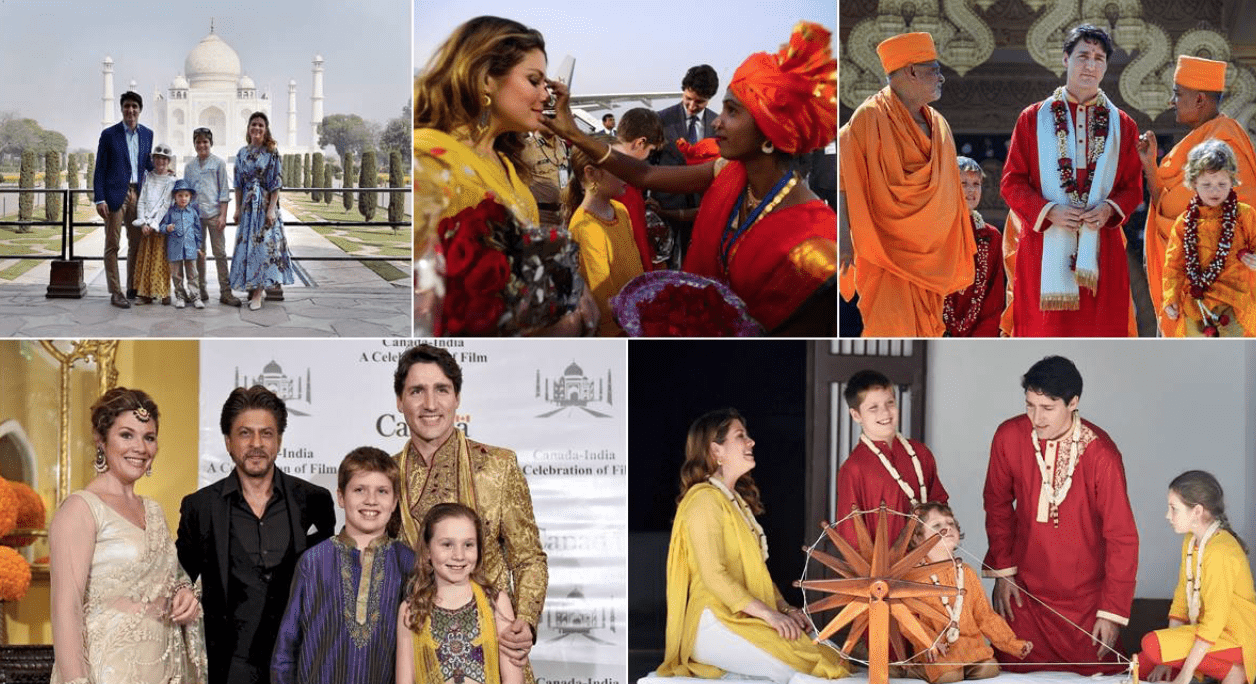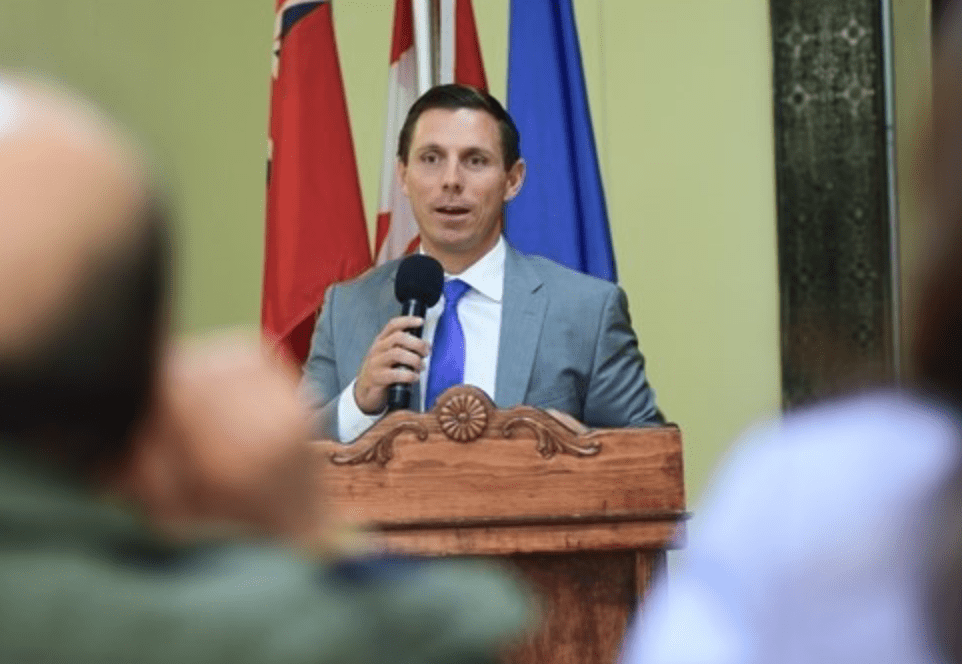February 2018 was a particularly bad month for made-in-Canada bozo eruptions, from the ongoing crap miasma that is the PC Party of Ontario's leadership race, to the National Lampoon-esque Trudeau family vacation to India, to the verdict in the Gerald Stanley trial (and, many would say, the trial itself).
But if we're being really honest, there was nothing special about February. Throughout this country's history, we've had to watch through our fingers as Prime Ministers, Premiers, judges, journalists, athletes and artists, and anyone else who calls themselves a representative of our terminally apologetic nation make utter asses of themselves on the world stage.
This year, the year of Canada 150, featured enough diffidence and shame so as to barely qualify as a celebration at all, while our respectable showing at the Olympics barely registers when compared to the cringe-a-lympics of public figures falling all over themselves. Globe and Mail articles about how our Olympians have become the new ugly Americans check any sort of national pride we might feel about our medal haul.
To be fair (and to be Canadian) there are signs that our insecurity might be on the wane, too. Loonie Politics colleague JJ McCullough, in one of his recent WaPo pot stirrers, posits that striving towards Canadian-ness is at an all time low, and "lived experiences that transcend country" are on the rise. He cites the popularity of the Canadian health care system among the American left, and that of Jordan Peterson and Lauren Southern among the right, and points out how American cultural movements like #MeToo and Black Lives Matter have taken root here. "Legions of young Canadian men blog and meme-war about Trump with little sense that it's a foreign fight," he writes.
What a lovely theory. However, as long as our national obsession with shame and being shamed persists, another explanation for this data exists: that Canadians are so worried about being stereotyped by those memelords as sensitive, snowflakey, insecure "f**king leafs" should they identify as Canadians, that they intentionally avoid confusing their American counterparts with the more idiosyncratic aspects of Canadian culture.
And those memelords have a point. When you read the harrowing and nauseating account of how the PC Party of Ontario dithered and delayed when it came to Patrick Brown's resignation, fretting about the news cycle rather than trying to make a principles decision, or how national security advisor Daniel Jean sacrificed his political neutrality to try and spin a story of "rogue elements" trying to make the PM look bad overseas, and an all-too-familiar picture of the status-conscious Canadian who is so afraid of looking silly that they stumble into countless social blunders emerges.
They would probably say it's not part of their mandate, but part of the blame for our tendency to take ourselves too seriously lies with the discounting of actual satire in favour of the kind of safe, inoffensive cornball humour pushed by the likes of CBC Comedy. Bad enough that our government comedians censor themselves at a level that you would never see on other public broadcasters such as the BBC, but you have to go to quasi-anarchists like Scott Vrooman to find someone who cracks jokes at the country's expense, and even then the humour is still rooted in an insecurity about corporations ruining our pristine reputation, rather than at the inadequate institutions themselves.
Perhaps a supremely talented artist, a Canadian Ai Weiwei, will emerge to criticize the absurd situation we find ourselves in. For that to happen, however a disaster on the level of the 2008 Sichuan earthquake would need to take place.
Thankfully no such catastrophe has occurred, but with the two resignations of Patrick Brown and the utter cluelessness of the Prime Minister becoming more and more difficult to ignore, perhaps more Canadians will stop giving the hacks that maintain a lock on our public institutions the benefit of the doubt. We have seen some developments towards mocking the Prime Minister's ridiculous outfits, and we have seen some fantastic political cartooning that likened the Patrick Brown situation to a real-life slasher film.
In a bit of humorous irony, the unbearable ridiculousness of Canadian public life may inspire the armchair comedian in all of us to demand better.
Photo Credit: The Indian Express
Written by Josh Lieblein








